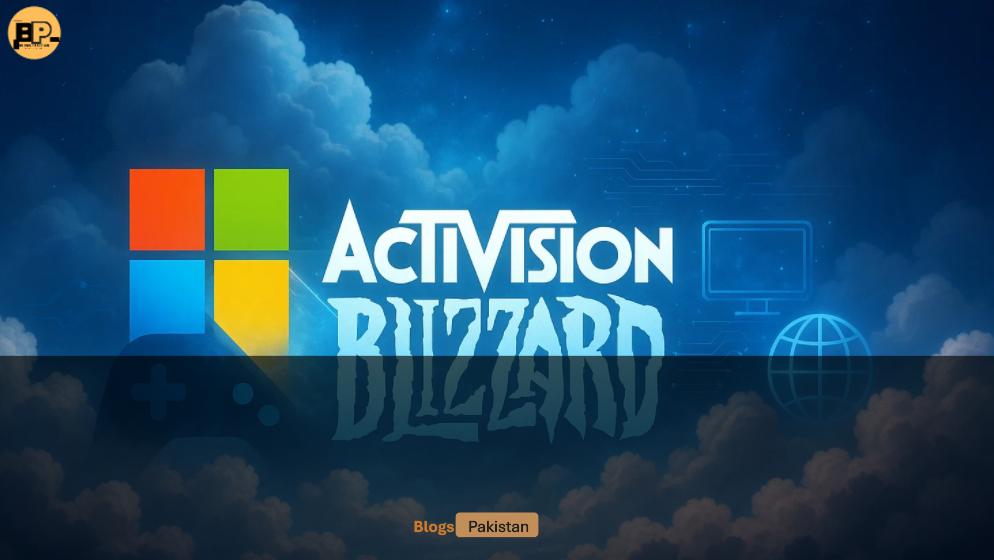A significant shift in the regulatory landscape of Big Tech, the U.S. Federal Trade Commission (FTC) has officially dropped its case against Microsoft’s $69 billion acquisition of Activision Blizzard, bringing one of the most high-profile antitrust battles in the gaming industry to a quiet close.
The decision marks the end of a months-long legal drama surrounding the tech giant’s acquisition of one of the world’s most prominent video game publishers, best known for its blockbuster franchises like Call of Duty, World of Warcraft, and Overwatch. As regulatory dust settles, questions loom large about what this means for Microsoft, its competitors, and the future of antitrust enforcement in the digital age.
Microsoft Emerges Victorious as FTC Steps Back
A Record-Breaking Gaming Deal
The Activision Blizzard acquisition, valued at $69 billion, is the largest merger in video game industry history and one of the most expensive tech acquisitions ever recorded. For Microsoft, this move was a strategic leap to strengthen its presence in the gaming sector, particularly in cloud gaming, game subscriptions, and console exclusives.
Following the official closure of the deal in 2023, the FTC had continued pursuing legal action, alleging that the merger could give Microsoft an unfair edge in the console wars and subscription gaming services, possibly harming competition and consumers.
But this week, the FTC finally withdrew, citing that pursuing the case was no longer in the public interest. The decision followed a failed appeal earlier in May, where the commission attempted to overturn a judge’s refusal to block the merger.
“A victory for players across the country and for common sense in Washington, D.C.,” said Brad Smith, Microsoft’s President, in response to the FTC’s move.
Why Did the FTC Drop the Case?
A Shift in Strategy and Prioritization
The decision comes amid broader changes in leadership and direction at the FTC. Under Chairman Andrew Ferguson, the agency is reportedly reevaluating which antitrust cases align with its evolving priorities—many of which are being adjusted to reflect the current political and economic climate.
Ferguson is said to be distancing the commission from some of the more aggressive cases pursued by former FTC Chair Lina Khan, who became known for her hardline stance on Big Tech. As part of this strategy, the FTC has also dropped other high-profile investigations, including one into PepsiCo’s alleged price discrimination favoring Walmart.
In simple terms, the FTC is reallocating its resources, choosing not to chase what it now considers closed or unproductive cases—even if they once sat at the core of its regulatory push against monopolistic tech behavior.
What Microsoft Gains from the Acquisition
Strengthened Game Ecosystem and Cloud Dominance
With the legal challenges behind it, Microsoft now fully owns Activision Blizzard, allowing the company to integrate some of the world’s most successful gaming franchises into its existing ecosystem, including:
- Xbox consoles
- Game Pass subscriptions
- Cloud gaming platforms (like Xbox Cloud Gaming)
By acquiring Activision, Microsoft now has deeper control over the supply of major gaming IPs. This could allow them to:
- Offer exclusive early access or entire game exclusives to Xbox users
- Expand the Game Pass library, attracting more subscribers
- Drive innovation in cloud-based and cross-platform gaming
This acquisition aligns with Microsoft’s broader ambition of creating a Netflix-style model for gaming, allowing players to stream and play titles anywhere, anytime—without the need for powerful local hardware.
Concerns of Industry Consolidation and Reduced Competition
What Were the FTC’s Arguments?
The FTC argued that the merger would allow Microsoft to:
- Withhold top-selling titles like Call of Duty from competing consoles (especially Sony’s PlayStation)
- Undercut competition in the gaming subscription market
- Gain disproportionate control in cloud gaming, a sector still in its infancy
These concerns weren’t entirely unfounded. Microsoft already holds a dominant position in gaming infrastructure, and by combining it with Activision’s massive library of IPs and users, it could tip the balance in favor of platform exclusivity and vertical integration.
Global Regulatory Reactions: Not Everyone Was on Board
While the FTC’s retreat is a major win for Microsoft in the U.S., the acquisition has faced mixed responses globally.
- The UK’s Competition and Markets Authority (CMA) initially blocked the deal but later reversed its decision after Microsoft offered remedies.
- The European Union approved the acquisition, provided Microsoft adhered to certain conditions ensuring fair competition.
This global tug-of-war illustrates the fragmented nature of tech regulation, where a deal cleared in one jurisdiction may face obstacles in another. It also underscores the growing scrutiny of Big Tech power across borders.
The Fallout for Competitors: What’s Next for Sony, Nintendo, and the Industry?
Microsoft’s dominance is now further solidified, putting pressure on competitors like:
- Sony, which has historically leaned on exclusives to drive console sales
- Nintendo, whose niche offerings may help it avoid direct competition but still feel market ripple effects
- Emerging cloud gaming platforms, which may struggle to compete against Microsoft’s combined content and delivery advantages
It’s expected that Sony will ramp up first-party game development and possibly pursue acquisitions of its own. Meanwhile, cloud startups may look to forge partnerships with other game publishers in hopes of keeping the market open.
Implications for Future Antitrust Cases
Is the FTC Losing Its Grip?
The decision to drop the Microsoft case could be seen as a setback for aggressive antitrust enforcement, particularly under the Biden administration, which had emphasized breaking up tech monopolies and promoting fair competition.
While the FTC says it’s merely reallocating resources, critics argue that failing to challenge such a massive consolidation could embolden further mega-mergers in the tech space. If Microsoft can close a $69 billion deal in one of the most competitive sectors in tech without a full trial, what precedent does that set?
Final Thoughts: A New Era for Microsoft and the Gaming World
Microsoft’s acquisition of Activision Blizzard is more than just a business deal—it’s a signal of where gaming is headed: toward massive content aggregation, platform integration, and cloud-first experiences.
For gamers, this may mean more choices under one roof and possibly better subscription deals. For developers and smaller publishers, however, the fear remains that an increasingly consolidated industry could limit diversity, innovation, and pricing power.
As for regulators, this outcome will likely serve as a case study in what not to do—or how quickly regulatory strategies must evolve to keep up with the scale and speed of Big Tech.










